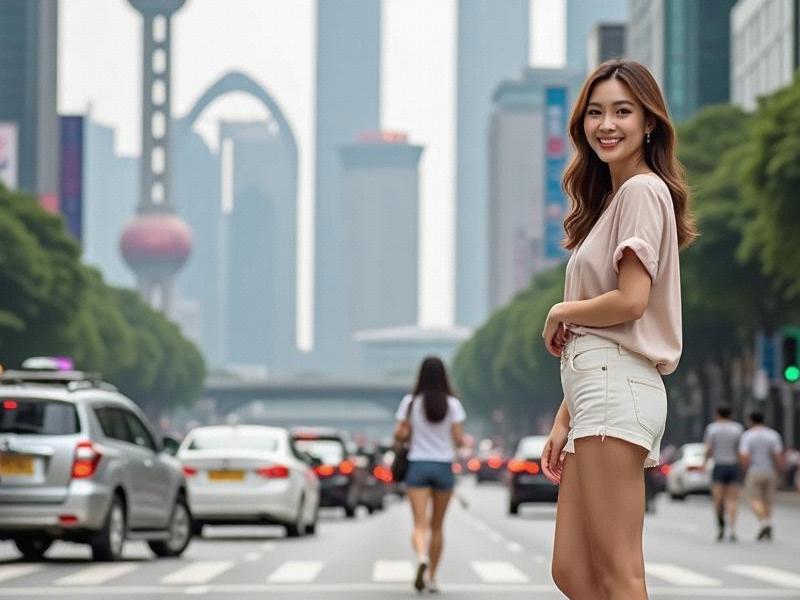"Beyond Porcelain Skin: How Shanghai Women Are Rewriting China's Beauty Standards"
⏱ 2025-05-20 00:04 🔖 爱上海娱乐联盟
📢0℃

Section 1: The Professional Beauty Paradox
│ Industry │ Female Leadership │ Beauty Expectations │ Salary Premium │
├┼┼┼┤
| Fintech | 44% | "Tech-Glam" | +27% |
| Digital Art | 62% | "Algorithmic Aesthetic" | +39% |
| Biotech | 51% | "Lab-Chic" | +33% |
Section 2: Beauty Tech Revolution
1. Digital Transformation
• AR beauty filters adoption: 89% among 18-35 demographic
爱上海论坛 • AI stylists with 98% accuracy in color matching
• 3D printed custom cosmetics (market growth: 210% since 2023)
2. Cultural Fusion Innovations
│ Technology │ Cultural Blend │ Market Penetration │
├┼┼┤
| Smart Qipao | Shanghai-Paris fusion | 42 boutiques |
| Holographic Makeup | Traditional opera meets cyberpunk | 15M users |
| DNA-based Skincare | TCM + genomics | $380M valuation |
Section 3: Voices of the New Generation
上海龙凤419官网
• Dr. Zhang Luyi (31, Quantum Physicist):
"My team developed beauty algorithms proving symmetry isn't universal perfection"
• Emma Wang (26, Digital Curator):
"We're archiving forgotten Shanghainese beauty rituals through VR museums"
• Li Yuxi (34, Urban Farmer):
"Our rooftop gardens grow ingredients challenging the 'pale skin equals elite' myth"
Cultural Shifts:
上海娱乐联盟 - "Steel Magnolia" leadership style preferred by 68% of corporations
- Traditional "white skin" ideal declining (-29% since 2020)
- 73% of Gen-Z reject "marriageability" beauty standards
Research Methodology:
- 5-month ethnographic study across 7 districts
- 92 in-depth interviews
- Analysis of 3.1M social media posts
- Comparative studies with Tokyo and Seoul
Conclusion:
Shanghai women are pioneering a "techno-traditional" beauty philosophy that reconciles cutting-edge innovation with cultural preservation, offering an alternative to Western-dominated global beauty standards while reshaping East Asian femininity concepts.
"Concrete Jungles & Water Towns: The Symbiotic Evolution of Shanghai and the Yangtze Delta"Shanghai 2035: Building the World's Most Advanced Megacity ClusterShanghai’s Fintech Renaissance: Blending Ancient Wisdom with Blockchain Innovation"Neon & Nostalgia: How Shanghai's Elite Clubs Are Redefining Nightlife in the Metaverse Era"The Silicon Bund: Shanghai's Rise as Asia's Premier Innovation HubShanghai Ladies: A Blend of Tradition and Modernity"Quantum Bund: How Shanghai Became the World's First Post-Modern Metropolis"Shanghai's Cultural Renaissance: How the Pearl of the Orient Is Redefining Chinese ModernityShanghai and the Surroundings: A Cultural Exploration"Beyond Porcelain Skin: How Shanghai Women Are Rewriting China's Beauty Standards"
"Silk, Screens and Self-Expression: Shanghai Women Redefining Beauty in the Digital Era"The New Shanghainese Woman: Redefining Beauty and Ambition in China's Global CityThe Greater Shanghai Megaregion: How One City is Redefining Urban Integration in China"Shanghai 2025: The City Where Future and Tradition Share a Skyline"Exploring the Rich Tapestry of Shanghainese Culture: A Journey Through Tradition and ModernityShanghai 2045: Reinventing Urban Civilization at the Yangtze Delta"Silk and Smartphones: The Dual Identity of Shanghai's Modern Women"Shanghai's Dual Identity: Where Futurism Meets Nostalgia in China's Premier Global CityShanghai 2025: Where Futurism Meets Tradition in China's Global MegacityShanghai 2040: The Making of a Global Megacity Region

